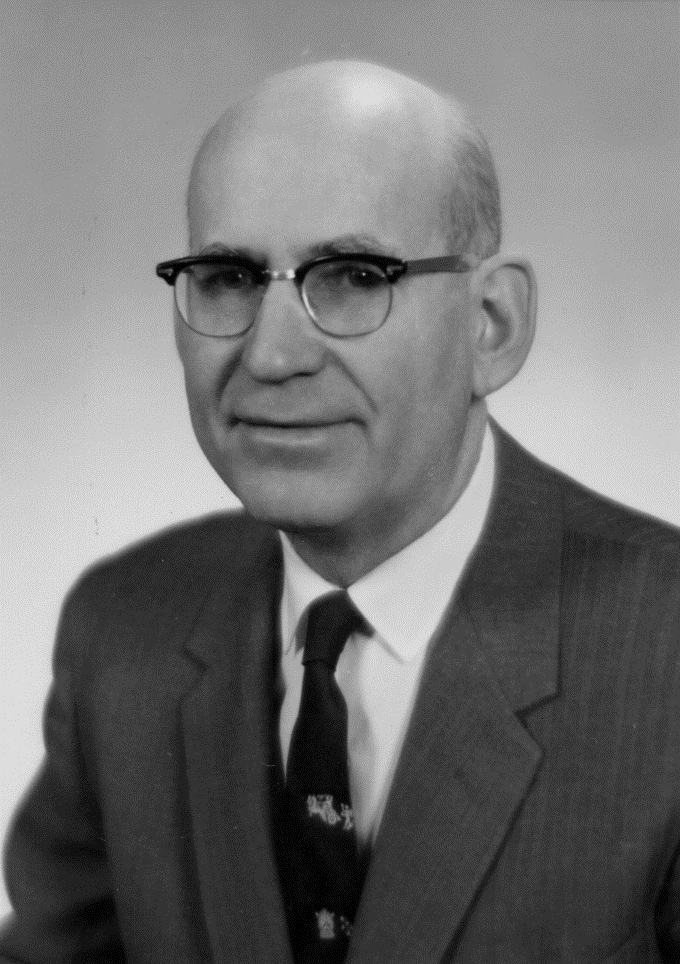Leonard A. Ford Lectureship 2025

The Ford Lectureship is made possible through the generous contributions of Barbara Olson and Joyce Anderson in honor of their father, Leonard A. Ford.
Ford Lectureship speakers have included a wide range of accomplished scientists from internationally recognized alumni to Nobel Laureates. Two presentations are given during each event, one a more technical presentation given during earlier in the day and the second of more general interest presented that evening.
35th Annual Ford Lectureship
The Department of Biochemistry, Chemistry, and Geology at Minnesota State University, Mankato will host the 35th Leonard A. Ford Lectureship on Wednesday, September 17, 2025, featuring Dr. Nick Riley, assistant professor of chemistry at the University of Washington. This event is free and open to the public.
The 2025 Technical Talk
“Tipping the Scales: How Mass Spectrometry Provides Insights into Health and Disease”
9:00 A.M.
Centennial Student Union - Ostrander Auditorium
Abstract: Mass spectrometry (MS) is a transformative analytical technique revolutionizing our understanding of biological systems and disease mechanisms. This presentation will introduce how mass spectrometers work, the concept of the proteome and post-translational modifications, why they matter for understanding healthy and disease, and how MS is used to capture this information with sensitivity and specificity. Our discussion will use my research path from forensic chemistry to mass spectrometry instrumentation development to proteomics and glycobiology as a framework for these discussions, but we will also touch on several other applications in clinical and environmental sciences to showcase the versatility MS brings to analytical, chemical, and biological research.
The 2025 General Talk
“The Biological Language Embedded in your Cells' Sugar Coating”
7:30 p.m.
Centennial Student Union - Ostrander Auditorium
Abstract: Every cell in your body is decorated with a complex sugar coating called the glycocalyx, forming an intricate molecular language that governs how cells communicate, recognize each other, and function. This presentation unveils the fascinating world of glycobiology—the study of sugars in biological systems—and reveals how these sweet molecules are far more than just energy sources.
Your cells use sugar structures like molecular barcodes, displaying unique patterns that identify cell types, signal health status, and coordinate immune responses. When you get a bacterial infection, your immune cells read these sugar codes to distinguish friend from foe. Cancer cells often alter their sugar signatures to evade detection, while many pathogens hijack this sugar language to gain entry into healthy cells.
Examples we will explore include how blood types are determined by subtle differences in cell surface sugars, why some people can't digest certain foods, and how understanding glycobiology is revolutionizing medicine. From developing new vaccines that target sugar-based patterns on viruses to creating glycan-based therapeutics for autoimmune diseases, scientists are learning to speak this cellular language fluently. In all, this presentation will introduce how these biomolecules represent one of nature's most sophisticated communication systems.
Speaker Biography
Dr. Nick Riley is an assistant professor in the Department of Chemistry at the University of Washington. He is originally from Louisville, KY and earned his B.S. in Chemistry from the University of South Carolina. He then moved to Madison, WI for his graduate studies with Prof. Josh Coon at UW-Madison, where he worked on mass spectrometry instrumentation and proteomics methodology. He focused on methods involving electron transfer dissociation, which introduced him to glycoproteomics. His newfound interest in glycoproteins led him to a postdoc with Prof. Carolyn Bertozzi at Stanford University, where he worked on new chemical biology, mass spec, and informatic tools to characterize mucin-domain glycoproteins and cell-type specific secretomes. Since starting in Seattle in fall 2023, his group uses state-of-the-art mass spectrometry and chemical glycobiology to investigate glycoproteome regulation. Specifically, his group is interested in understanding how altered cell surface phenotypes (i.e., glycocalyx status) manifest in cancer progression and drive metastasis.
For questions, please contact Chris Cords: christine.cords@mnsu.edu or call the Biochemistry Chemistry and Geology Department Office: 507-389-1963

